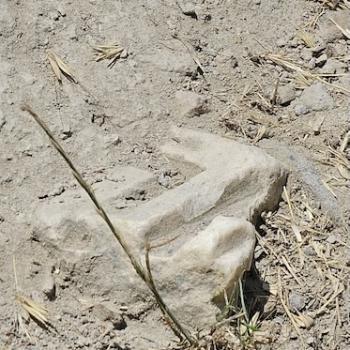On the surface of things, one might think that there could be no connection between Asbury Theological Seminary, and Martin Luther King Jr. To my knowledge Dr. King never visited Wilmore Kentucky, and he did his own seminary work in upstate New York (Colgate-Rochester). But books have influences in the same way people and places do, and there was indeed a book written by an Asbury man, E. Stanley Jones (for whom our Mission school has long been named) that helped shape King’s whole belief structure and approach to non-violent resistance to evil, prejudice, and oppression. The book was E. Stanley Jones’ moving chronicle of the life of Gandhi and Martin Luther King was clear about what an impact this book had on his thinking. This played out in town after town in the South during the Civil Rights marches, including at the famous Woolworth’s sit- in just down the road from where I grew up in High Point N.C.
Integration came to my town’s schools almost too late for MLK to see it, as he was murdered on April 4th, 1968. I remember well my first year in high school at High Point Central, the first year of integration. There was a good deal of tension and uncertainty in the air. Some African Americans in town were upset at the closing of the all black high school William Penn, which meant they lost their community school, their marching band, the teams they had cheered for, for years. There were certainly pluses and minuses to integration at the outset whatever viewpoint one took on the matter.
I remember the famous speeches about how ‘separate but equal is inherently unequal’ and in due course I began to see why. Life would never be the same again once all the schools were integrated. And in 1974 when I went to Boston to go to seminary, imagine my surprise when I discovered that the schools there were not integrated yet. Integration had been imposed on the South, but not on various places in the North. Many Southerners of course were angry about this. Not me. I was glad we were getting on with a more equitable society in the South. When I was a child there were still Confederate Memorial Days being held in the South until the last Civil War veteran or their widows finally died.
A full hundred years after Lincoln was shot and the Civil War was over, the wheels of change finally began to fully turn in the old South. And none too soon either. The South had already lost many of its brightest and best African Americans to large northern cities like Philadelphia, Cleveland, Detroit, Chicago, New York. For example, we lost almost all our great jazz musicians who came from North Carolina in the turmoil of the 40s-60s. John Coltrane from High Point, Theolonius Monk, Dizzy Gillespie, Nina Simone, left North Carolina to the safer environs of large northern cities to become jazz stars in northern constellations. Only now, have some southern cities begun to really appreciate and honor what they lost.
When I went to UNC in Chapel Hill in 1970 it was only shortly after one of my personal heroes, that ole Baptist basketball coach, Dean Smith, had integrated the restaurants and his basketball team with the help of Charlie Scott. Charlie in 1968 had been my coach at the Dean Smith basketball camp. He made me shoot free throws until I could hit about 30 in a row without missing. I remember seeing Charlie one day on campus, the lone black person in a sea of white students. I thought how hard must it have been to be Charlie and maintain his composure despite taunts and the like. There was a seriousness and sadness about Charlie, rather like the case with Jackie Robinson. He had the weight of the world on his shoulders.
Today, as we inaugurate President Obama for the second time (and it’s only the second time inauguration has come on MLK day) I am thankful that those days of tumult are behind us in the South. This is not to say that there is not plenty of prejudice still in the old South. There is, but thankfully we are mostly not teaching it to our children any more. Still there are lots more things which need to be done to make our society truly free and fair, with liberty and justice for all. As Dr. King once said, we do indeed need to pray that ‘justice will roll down like waters, and righteousness like an ever flowing stream’ in this deeply flawed nation. I too dream of a day when people will indeed be judged not by the color of their skin, but by the content of their character. Maybe that’s part of why the Gospel writers never describe what Jesus looked like. It was his character, not his skin color, that mattered.













